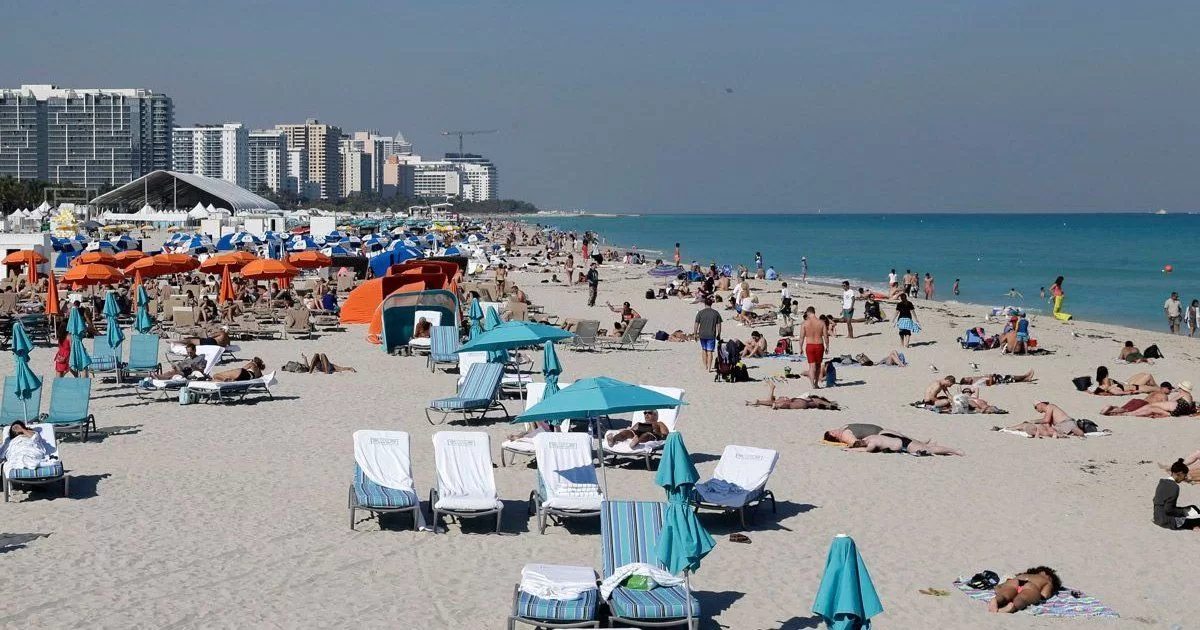What if one day the town in which you have spent your entire life, where your parents and grandparents were already located before you, had to be moved? Yes, we do write “moved”. That is to say dismantled brick by brick from the place where it was established and rebuilt elsewhere, like a giant Lego game. Such is the destiny now reserved for Grand-Santi, a village of 7,000 souls bordered by the Maroni, this immense river of more than 600 kilometers which winds interminably through the Amazonian forest of French Guiana. With climate change, the course of the Maroni is disrupted and regularly causes flooding of unprecedented magnitude. Recently, these forced the inhabitants to leave their homes in a hurry to live for several weeks without running water or electricity and to spend all their nights in canoes. Rather than lamenting his fate, the mayor, Félix Dada, then looked things in the face and began to methodically move Grand-Santi to heights that the muddy waters could not reach. But how to convince its inhabitants? “Patience and Determination”such is the slogan of this city councilor, astonishing in his composure and pragmatism.
An indispensable lung for our asphyxiated planet
Elected officials of this caliber, Guyana will need them in the decades to come. Because this territory, as big as Portugal but populated like Montpellier, is suffering the brunt of climatic upheavals. However, 95% covered with an absolute jewel, a patch of tropical rainforest in the Amazon, it is a spot of extraordinary biodiversity – a single hundred hectares of this forest has seven times more species of trees than the whole French metropolis! – and an indispensable lung for our asphyxiated planet. But the lung is bad. The trees (not very deeply rooted, contrary to what one might think), weakened by the brutal alternation of episodes of drought and torrential rains, are massively uprooted by the winds. However, a tree that dies and decomposes no longer plays its role as a carbon dioxide “vacuum cleaner”. Worse, it begins to release it into the atmosphere. Similarly, above a certain temperature (32°C, estimate the researchers based in Guyana), the forest no longer knows how to play its role as a “carbon sink” (retaining and storing 100 to 200 tonnes of gas at greenhouse effect per hectare) and begins to turn into a dangerous emitter! This is called “destocking”, which can aggravate the general warming of the climate, and create a so-called “runaway” effect: an atmospheric vicious circle, where warming causes even more warming.
The sequel after the ad
“What to do except change places?” », asks a resident of Kourou, the economic capital of the department. He and his neighbors know that the Atlantic rises inexorably, nibbles the shore: the mangrove that separated their homes from the ocean, just like the paved roads, have been swallowed up, year after year. It will soon be the turn of their accommodations. It will be necessary to leave, to accept that what was there will never be there again. This is, basically, climate change: an interminable upheaval of which we know neither the outcome nor the “effects of runaways”. A nature that is brutally redrawn before the eyes of men, both responsible and victims.
Monday March 20 at 9 p.m. on France 5. Documentary by Morad Aït-Habbouche (2023), 52 min. In “Bad weather for the planet”. (Available in replay on france.tv).

